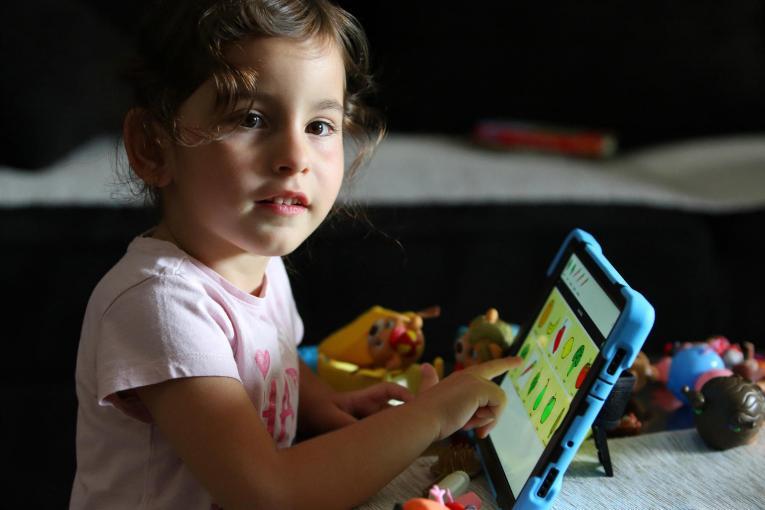The support will ensure the continuity of core health, child protection and educational services for children and their families
The European Union (EU) and UNICEF announced the start of a €5 million programme to alleviate the impact of COVID-19 on the most vulnerable children and families in the Western Balkans and in Turkey. Partnership efforts will provide some 490,000 children and parents with better access to public services that promote early childhood development, education, health, and protection as part of the COVID-19 recovery.
UNICEF Regional Director for Europe and Central Asia, Ms. Afshan Khan, said, “In the Western Balkans and Turkey, UNICEF’s collaboration with the European Union is intended to safeguard children’s right to education, health, and protection and ensure that national systems delivering these services are more equitable, inclusive and meet the needs of the most vulnerable children and parents. Looking at the period of recovery from the COVID-19 crisis, this programme is intended to contribute to building more resilient systems in these countries.”
“We cannot afford a generation COVID. With this programme we are helping to provide continued access to essential childcare services to almost half a million children and parents. This will include providing digital tools and quality digital content to families in remote areas, supporting the continuation of health and nutrition services, and improving the availably of Early Childhood Development services. This is part of wider EU efforts to support the Western Balkans and Turkey in their response to the pandemic and lessen the impact it has on the most vulnerable groups,” said Genoveva Ruiz Calavera, Director for Western Balkans, Directorate General for European Neighbourhood Policy and Enlargement Negotiations.
The EU-UNICEF multi-sectoral programme will strengthen efforts in Albania, Bosnia and Herzegovina, Kosovo*, Montenegro, North Macedonia, Serbia, and Turkey in order to improve access to core services, introduce new types of support for children and families, and build capacities of frontline workers across sectors.
In Bosnia and Herzegovina, families have experienced significant disruptions to health services. Safe reopening of schools requires tremendous effort and support. The pandemic resulting in reduced access to social protection services, have left women and children exposed to violence, abuse, exploitation and neglect, especially the most vulnerable groups such as children with disabilities, Roma children and children on the move. UNICEF Bosnia and Herzegovina has identified several priority areas for responding to the crisis, namely support to the health system including routine immunization and mental health, procurement of hygiene supplies, access to quality education, child protection and social protection, and risk communication.
*This designation is without prejudice to positions on status, and is in line with UNSC 1244 and the ICJ Opinion on the Kosovo declaration of independence
Financing for the programme is part of the EU’s assistance package for the Western Balkans in response to COVID-19, which currently exceeds €3.3 billion. Team Europe has also made a contribution of €2.2 billion for COVAX, including €1 billion EU funds.

